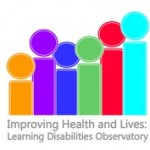
Magda Skowronska summarises a scoping review that finds significant evidence gaps around the implementation of trauma-informed care in emergency care, crisis teams, crisis houses and acute day hospitals.
[read the full story...]
Magda Skowronska summarises a scoping review that finds significant evidence gaps around the implementation of trauma-informed care in emergency care, crisis teams, crisis houses and acute day hospitals.
[read the full story...]
Keir Harding finds little published evidence to support people with ‘personality disorder’ diagnoses when they are in crisis.
[read the full story...]
Katerina Kavalidou reviews a prospective observational cohort study on mortality and suicide risk in young people after they present to hospital emergency departments following episodes of self-harm.
[read the full story...]
Laoise Renwick considers the findings of a recent systematic review on the safety of service users with severe mental illness receiving inpatient care on medical and surgical wards.
[read the full story...]
Pauline Heslop summarises a UK primary care study that shows how emergency hospital admissions for preventable conditions can be reduced in people with learning disabilities who receive annual health checks.
[read the full story...]
Clarissa Giebel presents the findings of a small RCT that evaluates the impact of a social work care coordination intervention on hospital readmissions in older adults.
[read the full story...]
Avoiding unnecessary hospital admissions for ‘ambulatory care sensitive conditions’ (ACSCs), reduces costs and should provide good outcomes for patients. ACSCs are defined as those where ‘effective management’ at the primary care level should avoid admission to hospital. Many of the conditions identified as ACSCs, for example convulsions and epilepsy are more common among people with [read the full story…]

This briefing aims to provide commissioners and providers with information on trends and activity to help them decide where to focus attention. Background The NHS faces the tightest financial settlement in its history. It is charged to find £20 billion in productivity improvements by 2015 Bed use for elective admissions accounts for 55% of admissions [read the full story…]